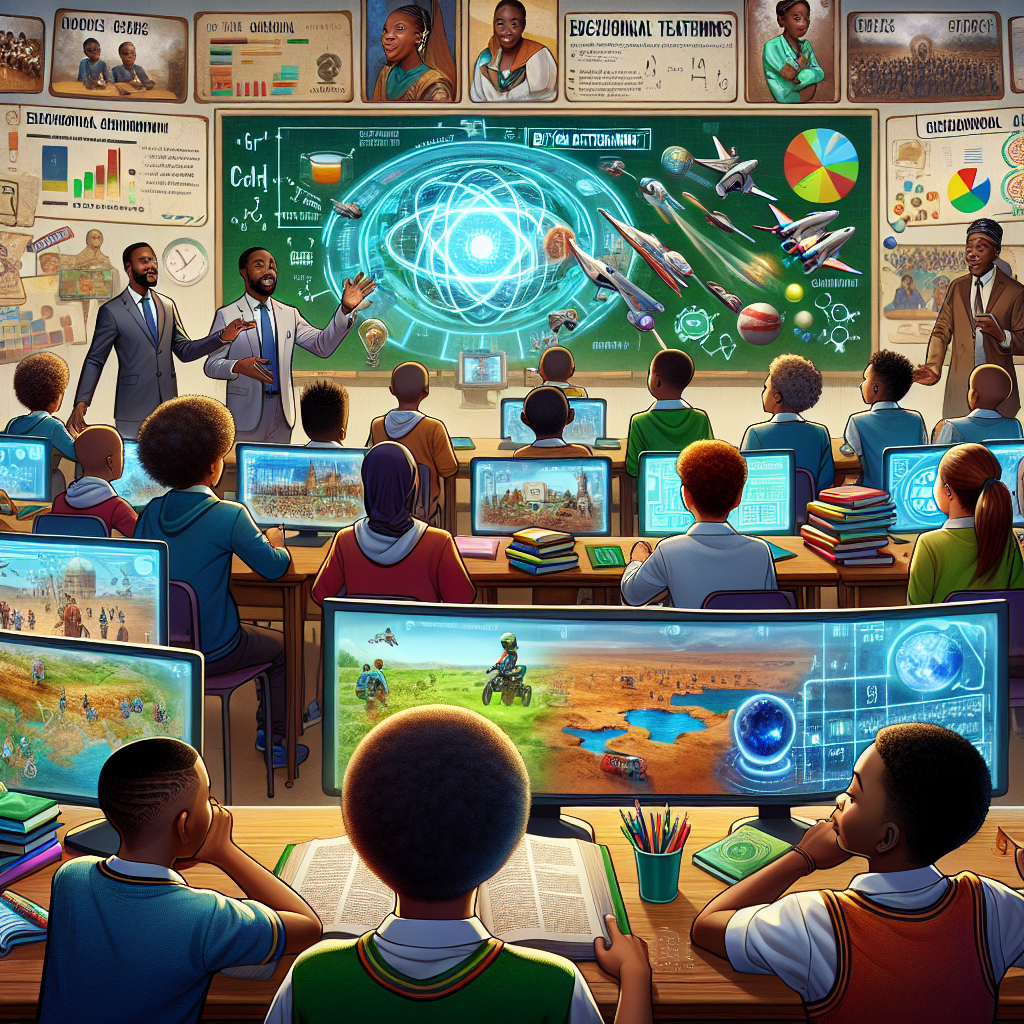Beyond Entertainment: The Educational Potential of Gaming in African Classrooms
In recent years, the global landscape of education has shifted dramatically, driven by technological advancements and a greater understanding of diverse learning methodologies. Among these innovations, gaming has emerged as a powerful tool that transcends its traditional role of mere entertainment. In Africa, where educational challenges abound, harnessing the educational potential of gaming could be revolutionary, offering engaging, interactive, and culturally relevant learning experiences for students.
The Intersection of Gaming and Education
Gaming and education have often been viewed as opposite sides of the spectrum, but the intersection of these fields is rich with possibilities. Educational games, often referred to as "serious games," are designed with the primary purpose of teaching, training, or raising awareness. These games provide interactive environments where students can learn through exploration, problem-solving, and collaboration.
In African classrooms, a continent characterized by diverse cultures, languages, and educational systems, gaming can be tailored to reflect local contexts, thereby making learning not only relevant but also engaging. As education systems strive to incorporate technology into their curricula, gaming provides a unique opportunity to bridge the gap between traditional educational methods and modern pedagogical approaches.
Enhancing Engagement and Motivation
One of the most significant benefits of incorporating gaming in education is its ability to enhance student engagement and motivation. Traditional methods of teaching can often lead to disengagement, especially in subjects perceived as challenging or irrelevant. Gamification—integrating game elements into learning processes—can transform lessons into exciting challenges that captivate students’ attention.
For instance, mathematics and science concepts can be taught through interactive simulations and virtual experiments that allow students to visualize and manipulate elements in a virtual space. This hands-on approach helps students grasp complex concepts more effectively, fostering a more profound understanding and appreciation of the subject matter.
Promoting Skills Development
Games inherently encourage critical thinking, problem-solving, creativity, and collaboration—all essential skills for the 21st century. In a gaming environment, students are often faced with challenges that require strategic thinking and teamwork to overcome. By working together to achieve a common goal, students can enhance their communication skills and learn the value of collaboration.
In addition, many educational games are designed to assess students’ skills in real-time, providing immediate feedback that can inform their learning experience. This iterative process encourages a growth mindset, where students are more willing to take risks and learn from their mistakes.
Culturally Relevant Content
Another significant advantage of gaming in African classrooms is the potential for culturally relevant content. Educational games can be designed to reflect local histories, challenges, and narratives, making learning more relatable. By integrating local languages, myths, and social issues into games, educators can develop a curriculum that speaks to students’ identities and experiences.
For example, a game that explores the history of trade routes in Africa or the ecological challenges faced by different regions can help students connect with their heritage and environment. Such contextualization not only enhances the educational experience but also fosters national pride and awareness of local issues.
Overcoming Challenges
Despite the potential benefits, several challenges must be addressed to effectively integrate gaming into classrooms across Africa. Access to technological resources remains a barrier; many schools are under-resourced and lack adequate infrastructure, such as reliable electricity and internet. Ensuring equitable access to hardware and software is crucial for successful implementation.
Furthermore, training teachers to effectively use gaming as a teaching tool is essential. Educators need to be equipped with the knowledge and skills to integrate games effectively into their lesson plans and to facilitate a learning environment that encourages exploration and innovation.
Conclusion
Gaming holds immense potential in revolutionizing education in African classrooms. By moving beyond its perception as mere entertainment, stakeholders in the education sector can leverage the interactive and engaging nature of games to enhance learning experiences. Through tailored content, skills development, and increased student motivation, gaming can become a catalyst for educational transformation.
In a continent rich with diversity and creativity, embracing the educational potential of gaming could pave the way for a more engaging, relevant, and effective learning environment. As we look to the future, it is essential to foster collaboration among educators, game developers, and policymakers to create a framework that supports the integration of gaming into education, ultimately cultivating a new generation of innovators, thinkers, and leaders in Africa.




